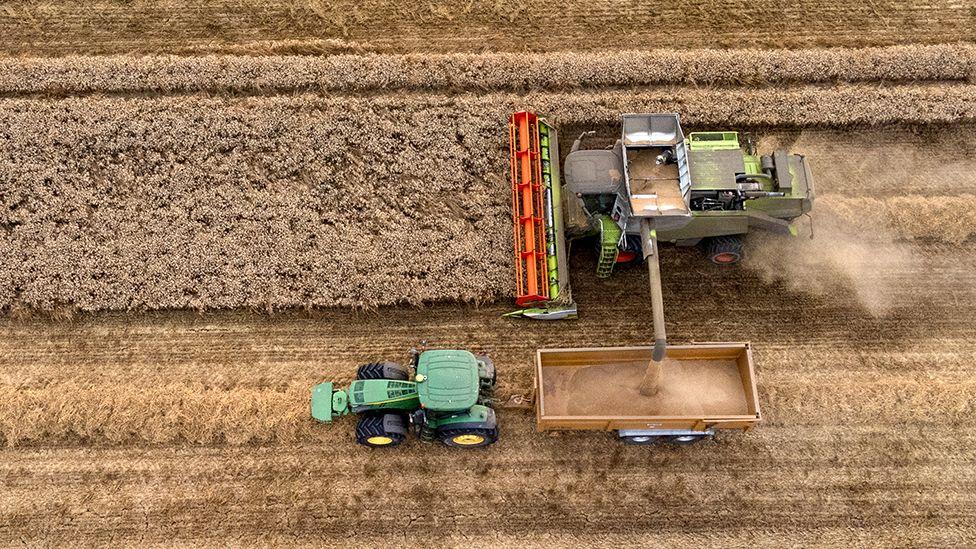University farm to test climate-smart agriculture
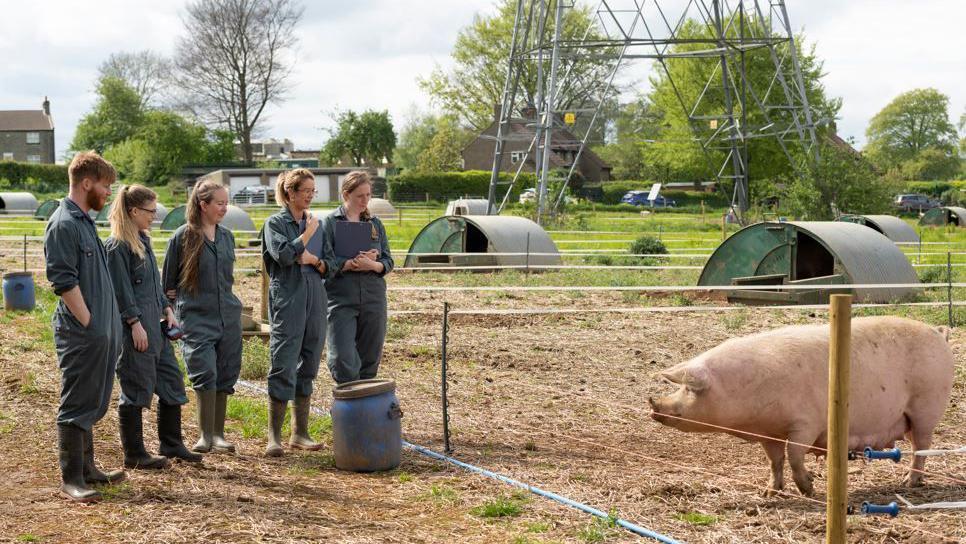
The farm, between Leeds and York, is home to the National Pig Centre
- Published
A farm belonging to the University of Leeds is taking part in a project to research and test ways of reducing agricultural emissions.
The site, which is between Leeds and York, is one of 10 across Europe taking part in the Climate Smart Research project.
The university hopes it can find ways to reduce the farm's carbon footprint by 55% over the course of the five-year project.
Professor Guy Ziv, from the School of Geography, said it was about "understanding the farm as a complete, interconnected system."
The university said it would test methods such as managing emissions from manure and slurry, and monitoring the ways in which features such as hedgerows can prevent greenhouse gasses from entering the atmosphere.
It will receive £1.1m from the Horizon Europe programme to help fund the research over the next five years.
Prof Ziv, who is leading the project, said: "By studying everything from animal feed and manure management to how our cropping systems and hedgerows can capture carbon, we can identify holistic solutions that are truly effective.
"Ultimately, this research is about providing farmers here in the UK and across Europe with robust, evidence-based options that are both environmentally and economically viable."
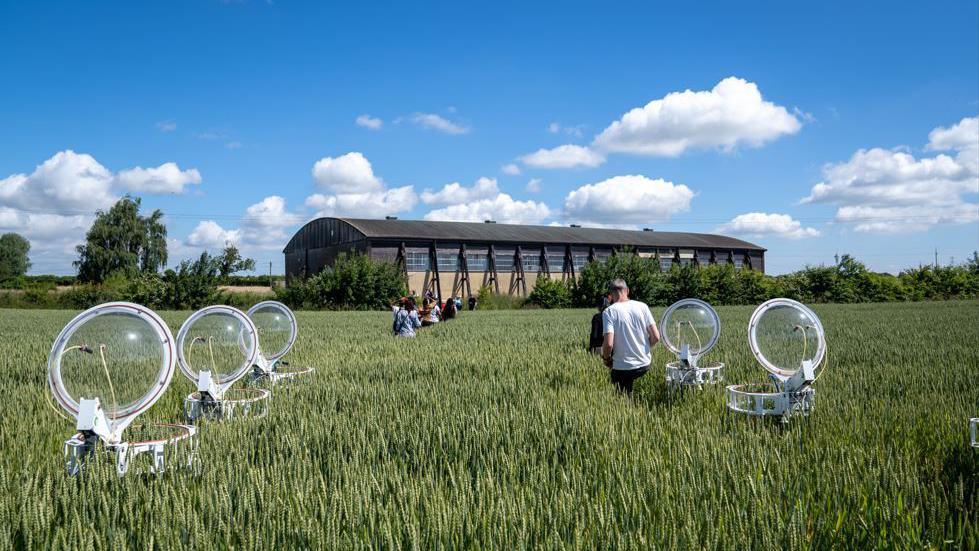
It is one of 10 farms across Europe taking part in the project
Over the next five years, the project will develop, test, and promote cutting-edge solutions for climate-smart farming to speed up the transition toward climate-neutral agriculture in Europe.
The university is one of 33 partners from 26 European countries taking part in the £11m Climate Smart Research project.
Co-ordinated by Wageningen Research in The Netherlands, it aims to help make European agriculture more climate-resilient and sustainable.
The University of Leeds farm, which operates commercially, covers approximately 317 hectares and brings together four farmsteads.
It houses the National Pig Centre, which opened in 2019, and the University of Leeds Terrestrial Observatory, a £3m suite of instrumentation and research tools that forms part of the Global Food and Environment Institute.
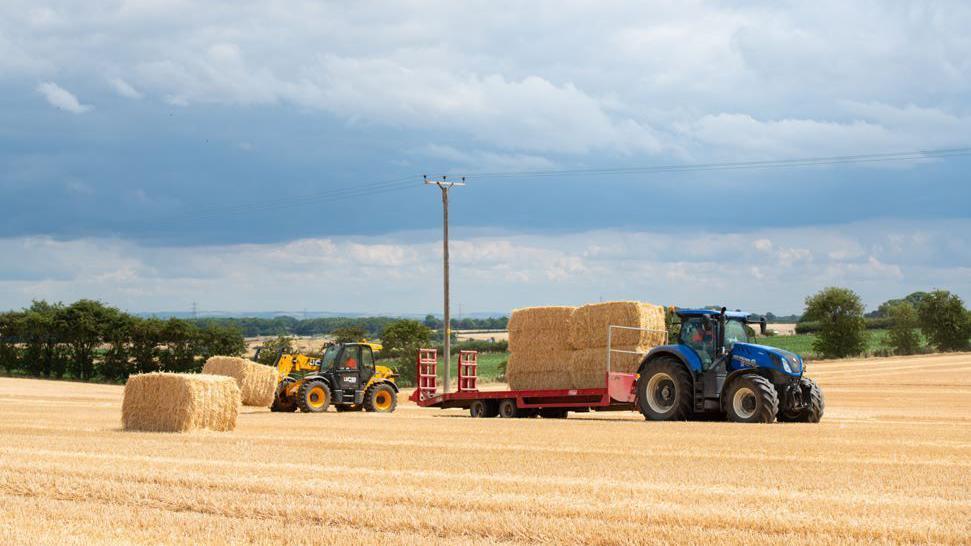
The project will support farms in the future, the university has said
The farm also has EntoExplore, a containerised insect farm which is used to explore the role of insect farming in sustainable food systems.
Dr Ruth Wade from the School of Biology is one of the researchers running the regenerative agriculture trials at the University of Leeds farm which is currently funded by FixOurFood and Defra.
She said: "The University of Leeds farm is such a fantastic resource to lead research, knowledge exchange and teaching activities in future-proofing farming systems."
"This new project enables us to join our cutting-edge research with other leading farms across Europe - sharing research findings and learning from one another, building a robust evidence-base to support farms into the future."
Get in touch
Tell us which stories we should cover in Yorkshire
Listen to highlights from West Yorkshire on BBC Sounds, catch up with the latest episode of Look North.
Related topics
- Published5 June
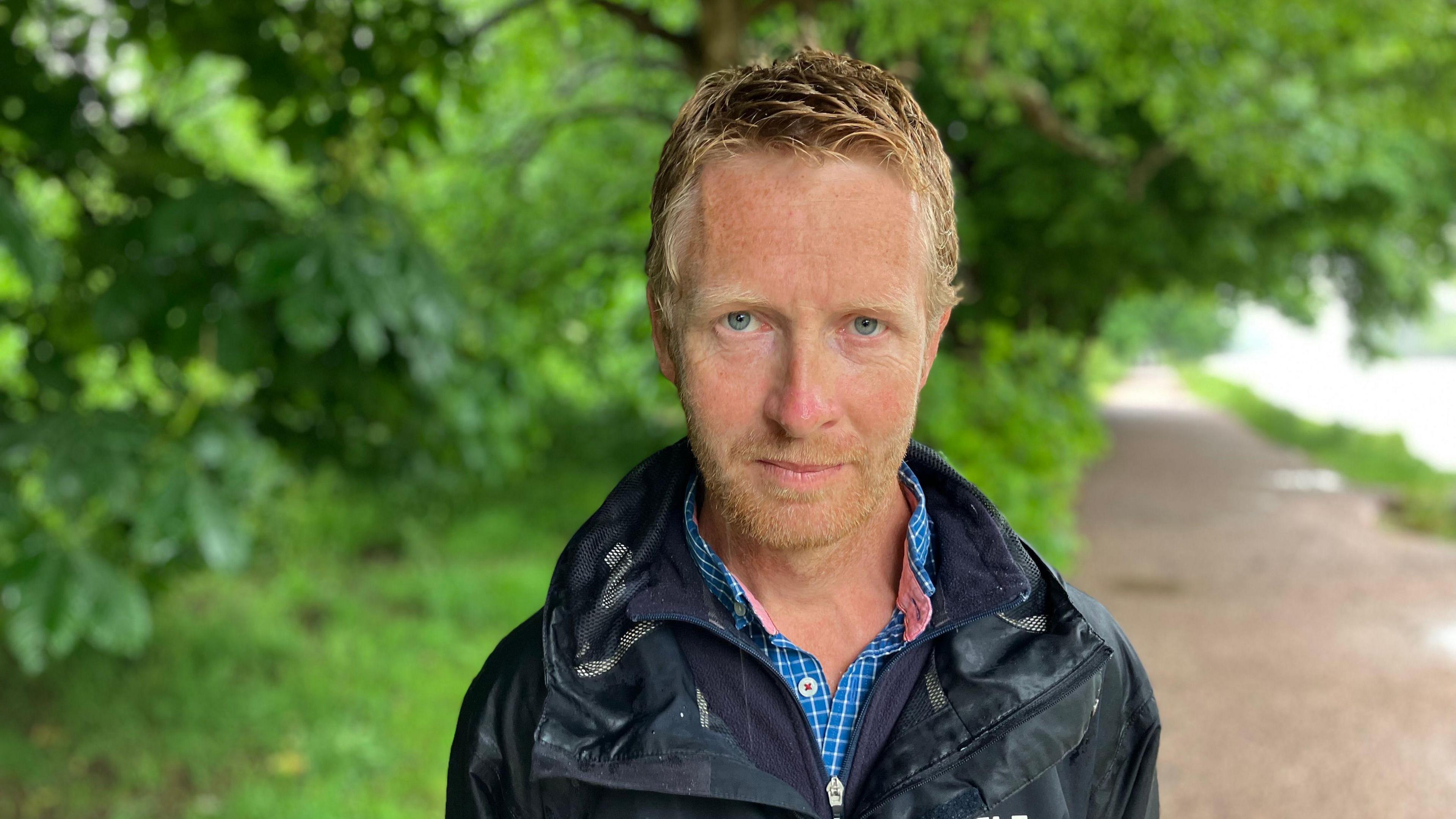
- Published11 September 2024
